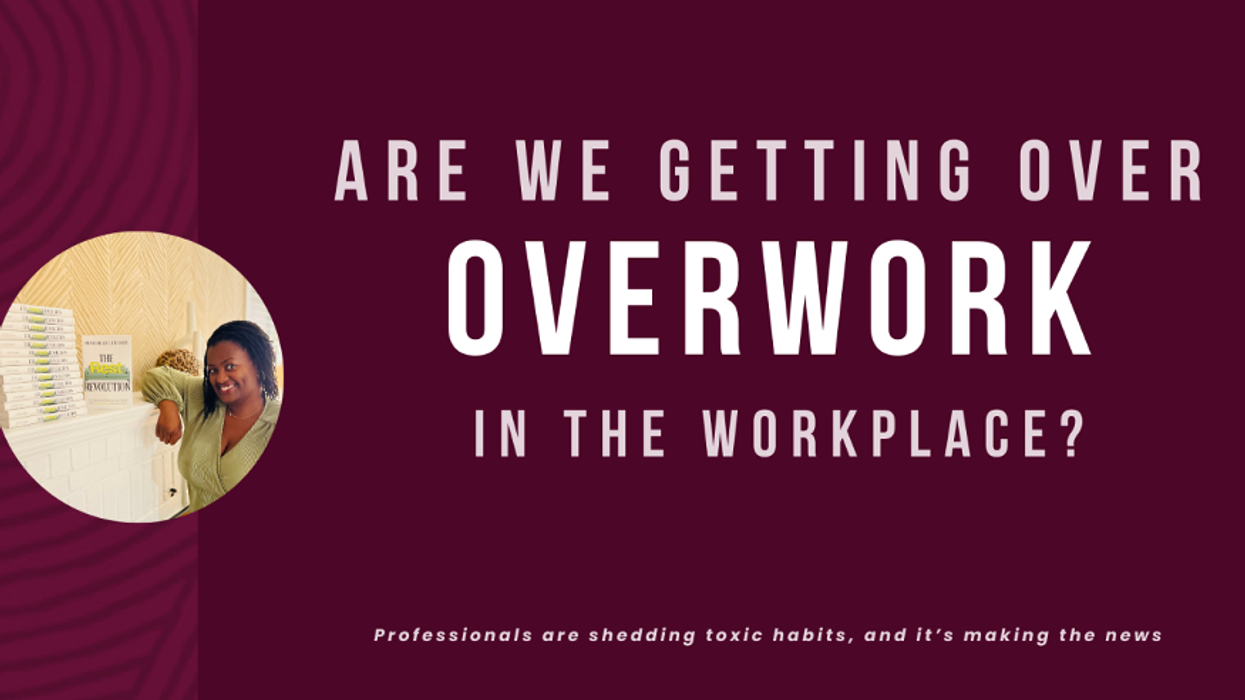In our quick-moving world, many see rest as a treat, not a must-have. We praise non-stop work, look up to those who put in long hours, and show off how tired we are. But the truth? Working too much does more bad than good. Not getting enough rest has an impact on health leading to burnout, ongoing stress, and worse overall health.
Despite what many think, rest isn't being lazy, it's key to a healthy balanced life. Making time to rest has an influence on mental health just like working out and eating well. Without it, our bodies and minds take a hit making it tough to be at our best. You need to know the importance of rest for mental health.
The Cost of Overworking
People often think productivity means working harder and longer believing non-stop effort results in more success. However, studies reveal overworking has serious drawbacks:
- Stress and anxiety rise – Working too many hours boosts cortisol (the stress hormone), which can cause mental burnout.
- The immune system weakens – Not getting enough time to rest leaves the body open to sickness.
- Chronic diseases become more likely – Too much work has links to high blood pressure, heart problems, and diabetes.
- Thinking skills decline – Being tired cuts down on focus, creative thinking, and the ability to solve problems.
Overextending ourselves doesn't boost our productivity in the long term. Instead, it has an impact on us negatively causing burnout, lowering our effectiveness, and making us unhappy overall.
Why Rest is Crucial for Health
Rest isn't just about sleeping, it includes taking mental breaks, unwinding, and finding quiet moments throughout the day. Real rest allows our bodies to recover, our minds to recharge, and our emotions to level out.
Rest and Physical Health
Getting enough rest has a big influence on our physical health. Here's how:
- Cellular repair – Sleep has an impact on vital healing processes in the body fixing muscles, tissues, and even brain cells.
- Hormonal balance – Enough sleep keeps hormones in check to control metabolism, stress response, and mood.
- Heart health – Sleeping lowers heart rate and cuts the risk of heart disease.
- Weight management – Lack of sleep throws off hunger hormones making you crave more food and gain weight.
When we skip sleep, our bodies have a hard time working right. This is why sleep is not just a nice-to-have—it's a must-have to stay healthy.
How Rest Affects Mental Health
One of the most ignored advantages of rest is that it influences mental wellness. At a time when mental health issues are becoming more common, giving priority to rest for mental health is crucial now more than ever.
- Lowers stress and worry – Resting lets the nervous system unwind, dropping cortisol levels and soothing the mind.
- Lifts spirits – Sleep and relaxation raise serotonin and dopamine levels helping to fight depression.
- Sharpens focus and imagination – A rested brain handles information better leading to clearer thinking and problem-solving abilities.
- Stops burnout – Taking breaks prevents emotional drain and builds overall toughness.
To be at our best, we need to understand how rest impacts our mental health. Rest isn't a prize for hard work—it's essential for our well-being.
Types of Rest and How to Add Them to Your Life
Rest means more than sleeping for eight hours. Many kinds of rest help us stay healthy. Here's how to fit them into your day:
1. Physical Rest
This covers sleep, naps, and ways to relax that let your body recover.
- Make quality sleep a priority – Try to get 7-9 hours of sleep without interruptions each night.
- Take quick naps – A 20-minute nap can give you an energy boost and improve your brain function.
- Do activities that help you recover – Things like yoga, stretching, and massage help your body relax.
2. Mental Rest
When your mind is overloaded, it can make you feel foggy and less able to focus. Taking breaks for your mind helps stop you from burning out.
- Give your eyes a break from screens – Cut down on screen time to let your brain recharge.
- Try deep breathing – Simple breathing exercises can lower your stress levels.
- Plan time to do nothing – Set aside time to daydream, meditate, or just sit and think.
3. Emotional Rest
Holding back feelings can drain you. Expressing emotions can help you feel more balanced.
- Journaling – Writing your thoughts and feelings can ease stress.
- Talking to a friend – Sharing with supportive people can lighten your load.
- Setting boundaries – Learning to say no helps avoid burnout.
4. Social Rest
Not every social interaction recharges you. At times, you need space from others to regain energy.
- Cut back on draining relationships – Hang out with people who lift your spirits and give you energy.
- Spend time alone – Being by yourself can help you recharge.
- Pick meaningful interactions – When it comes to socializing, go for quality rather than quantity.
5. Creative Rest
If you're feeling uninspired or stuck, your brain needs a creative reboot.
- Get out in nature – Being in natural settings can spark creativity and lower stress.
- Have some fun – Sketching, writing, or listening to tunes can refresh your mind.
- Switch up your surroundings – Seeing things from a new angle can trigger fresh ideas.
Knowing about these different types of rest can help you find balance and avoid burning out.
Getting Over the Shame of Taking a Break
One of the main hurdles to making rest a priority is the shame that comes with it. A lot of folks think that taking time off means they're not getting things done. But rest isn't a waste of time—it's a way to invest in your health.
Ways to Welcome Rest Without Feeling Bad
- Change your outlook – Understand that resting boosts productivity, not slows it down.
- Put rest on your calendar – View rest as a crucial meeting you can't miss.
- Be aware of your body's signals – Notice signs of tiredness and overwork.
- Be kind to yourself – Remember you need rest just like you need food and water.
Once you start seeing rest as vital, you'll spot improvements in your energy, mental sharpness, and overall joy.
In a world that always wants more, more work, more output, more success, choosing to rest helps us survive. Rest shakes things up because it questions the idea that our value depends on how much we do.
Making rest for health a priority isn't selfish, it's crucial. Without it, we can't be present for ourselves, our jobs, or the people we care about. Rest for mental health matters just as much helping us stay steady, sharp, and tough.
We can't stress enough how important rest is for mental health. When you make rest for health a must-have in your life, you build the base for a healthier more rewarding life.
So when you next feel bad about taking a break keep this in mind: Rest isn't something you get after working hard, it's something you need to keep going. Pick rest. Your body and mind will be grateful for it.
References
- American Psychological Association (APA). (2013). Stress in America: Are Teens Adopting Adults' Stress Habits? Retrieved from www.apa.org
- Harvard Medical School. (2020). The Importance of Sleep and Mental Health. Harvard Health Blog. Retrieved from www.health.harvard.edu
- National Institute of Mental Health (NIMH). (2020). Sleep and Mental Health. Retrieved from www.nimh.nih.gov
- Mayo Clinic. (2021). Stress and Sleep: How Stress Affects Your Sleep and What You Can Do About It. Retrieved from www.mayoclinic.org
- Centers for Disease Control and Prevention (CDC). (2021). How Sleep Affects Your Health. Retrieved from www.cdc.gov
- Harvard Business Review. (2016). The Hidden Costs of Overwork. Retrieved from www.hbr.org
- National Sleep Foundation. (2020). Why Rest and Recovery are Key to Health and Performance. Retrieved from www.sleepfoundation.org
- American Heart Association. (2021). Sleep and Heart Health. Retrieved from www.heart.org
- Psychology Today. (2020). The Mental Health Benefits of Rest. Retrieved from www.psychologytoday.com
- World Health Organization (WHO). (2021). Physical Activity, Sleep, and Mental Health: A Global Perspective. Retrieved from www.who.int









 Karla Mingo believes that her greatest gift as a cancer survivor is the ability to live with gratitude and thankfulness.
Karla Mingo believes that her greatest gift as a cancer survivor is the ability to live with gratitude and thankfulness.



